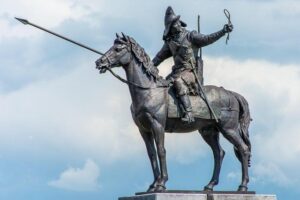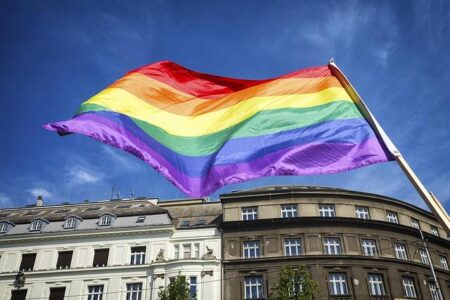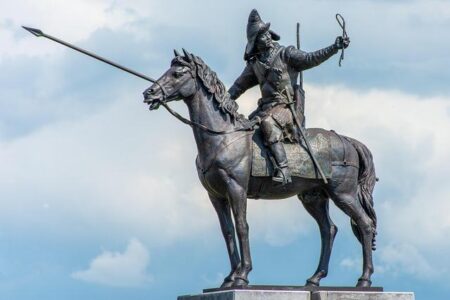Clergy Influence on Political Opinions: Navigating Faith and Democracy
As election cycles grow more intense, the involvement of religious leaders in shaping political viewpoints has sparked renewed debate. Clergy often command considerable respect and authority within their communities, raising the pivotal question: is it appropriate for them to use their platforms to influence how congregants vote? This article delves into the nuanced relationship between religion, politics, and individual autonomy, assessing whether spiritual leaders bear a duty to guide political decisions or risk crossing ethical boundaries.
Historical Impact of Religious Leaders on Politics
Historically, religious figures have played a significant role in political affairs, wielding moral authority to sway public sentiment and policy-making. From medieval clergy who advised kings and controlled vast lands, to reformers who reshaped entire nations, and civil rights activists who galvanized social change, the influence of faith leaders has extended well beyond the sanctuary. This blending of spiritual leadership and political activism has at times propelled progressive reforms, while in other instances, it has upheld existing power hierarchies.
Notable historical instances of clergy shaping political landscapes include:
- During the Middle Ages, bishops acted as powerful political advisors and landowners, legitimizing monarchs and governing territories.
- The Protestant Reformation, led by religious reformers, dramatically shifted political and religious authority across Europe.
- In the 20th century, figures like Martin Luther King Jr. used their religious platforms to advance civil rights and influence legislation.
| Period | Clergy Role | Political Impact |
|---|---|---|
| Medieval Era | Advisors & Landholders | Supported monarchies, controlled regions |
| Reformation | Preachers & Reformers | Challenged papal power, altered governance |
| 20th Century | Activists & Orators | Promoted civil rights, shaped laws |
Harmonizing Spiritual Leadership and Political Neutrality
Religious leaders occupy a unique position of trust and ethical guidance within their communities. Yet, when they actively influence voting behavior, it can blur the line between spiritual counsel and political partisanship. While their viewpoints often arise from sincere convictions, endorsing specific political choices risks alienating members with diverse beliefs and undermining the inclusive nature of faith communities.
Achieving a balanced approach involves establishing clear boundaries and fostering mutual respect. Key principles to consider include:
- Upholding individual conscience: Encouraging congregants to make informed, independent voting decisions.
- Distinguishing roles: Addressing moral and ethical issues without advocating for particular candidates.
- Promoting open dialogue: Facilitating conversations centered on shared values rather than partisan politics.
Preserving the integrity of both religious traditions and democratic participation depends on respecting spiritual guidance while honoring personal political freedom.
Advantages and Challenges of Clergy Political Endorsements
When faith leaders publicly back political candidates, they leverage a potent platform capable of mobilizing voters and shaping election results. Such endorsements can illuminate ethical dimensions of critical social issues, helping congregants align their ballots with their moral convictions. For example, clergy might emphasize candidates’ positions on social justice, environmental stewardship, or human dignity, offering guidance grounded in religious ethics rather than partisan allegiance. This connection between spirituality and civic duty can invigorate political participation, especially among those wrestling with reconciling faith and politics.
Conversely, intertwining religious authority with political endorsements carries notable risks. It can deepen divisions within faith communities, fostering mistrust or exclusion among members with differing views. Additionally, the blending of pulpit and politics may jeopardize the tax-exempt status of religious organizations and raise public concerns about the impartiality of spiritual leaders. The table below outlines key benefits and drawbacks:
| Benefits | Challenges |
|---|---|
| Boosts voter engagement within faith communities | Potential for community polarization and conflict |
| Clarifies moral implications of policies | Risk of losing tax-exempt privileges |
| Amplifies marginalized voices through ethical leadership | Threatens religious independence and neutrality |
Best Practices for Faith-Based Voting Guidance
Ensuring integrity in religiously informed voting advice requires a careful balance between spiritual mentorship and respect for democratic diversity. Clergy should focus on delivering impartial, evidence-based information rather than endorsing specific candidates or parties. This approach honors the plurality of political opinions within congregations while fulfilling moral responsibilities. Transparency about information sources and the rationale behind guidance fosters trust and supports an informed electorate.
Faith communities can adopt the following standards to maintain ethical voting guidance:
- Encouraging unbiased voter education that presents multiple perspectives.
- Facilitating critical thinking through respectful, open discussions.
- Protecting privacy by refraining from public endorsements.
- Aligning messages consistently with core religious teachings and values.
| Core Principle | Implementation |
|---|---|
| Neutrality | Provide balanced information without favoritism |
| Transparency | Clearly disclose sources and intentions |
| Respect | Value diverse political perspectives within the congregation |
| Accountability | Clarify that voting advice is advisory, not compulsory |
Conclusion: Navigating the Intersection of Faith and Political Engagement
The ongoing discussion about clergy involvement in political matters underscores the intricate and personal nature of faith-based voting decisions. While religious leaders undeniably hold sway within their communities, the choice to direct political preferences ultimately rests with each individual. In today’s diverse and pluralistic societies, maintaining a clear separation between spiritual counsel and political endorsement is vital to safeguarding both religious liberty and the integrity of democratic processes.













